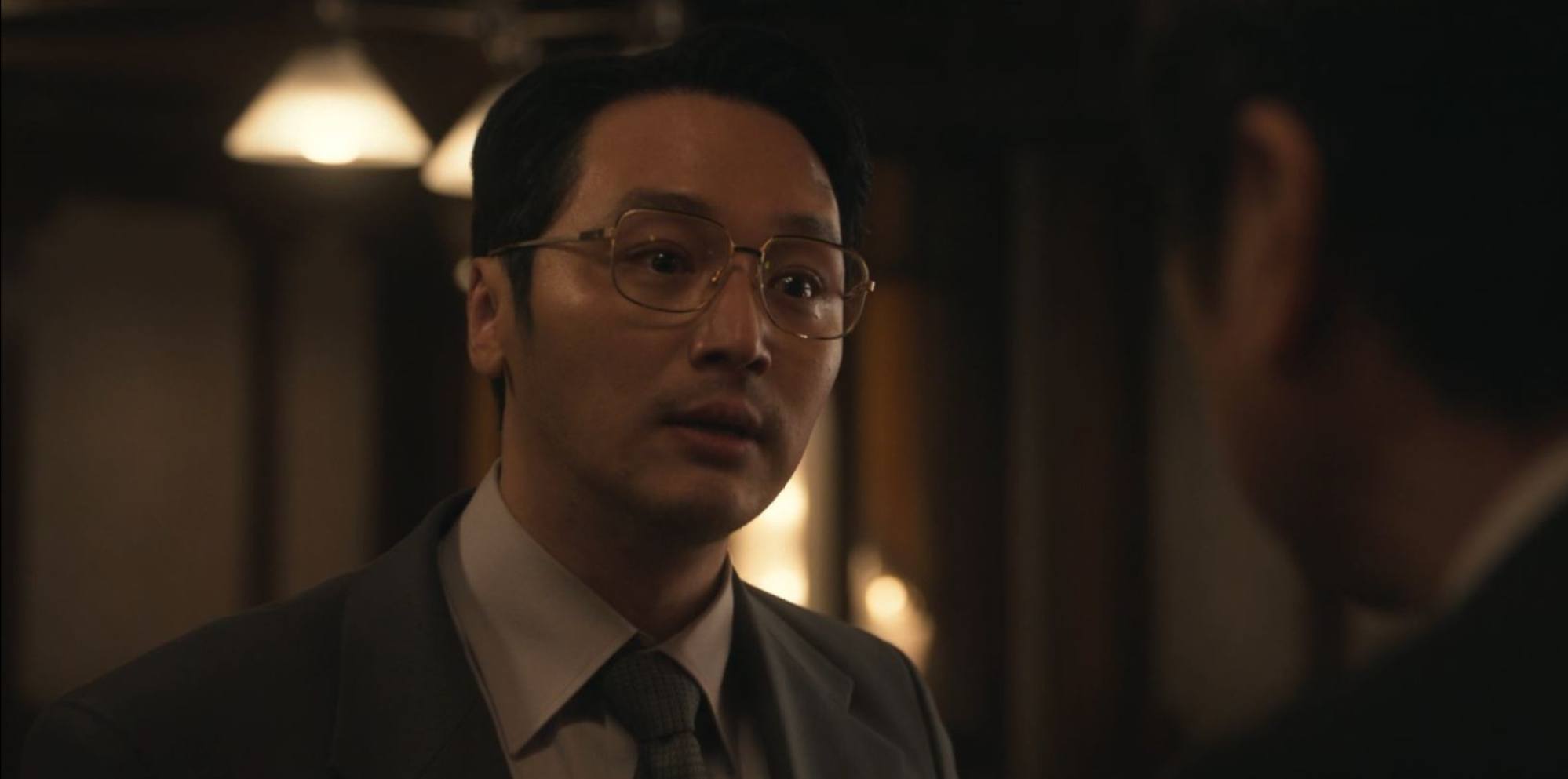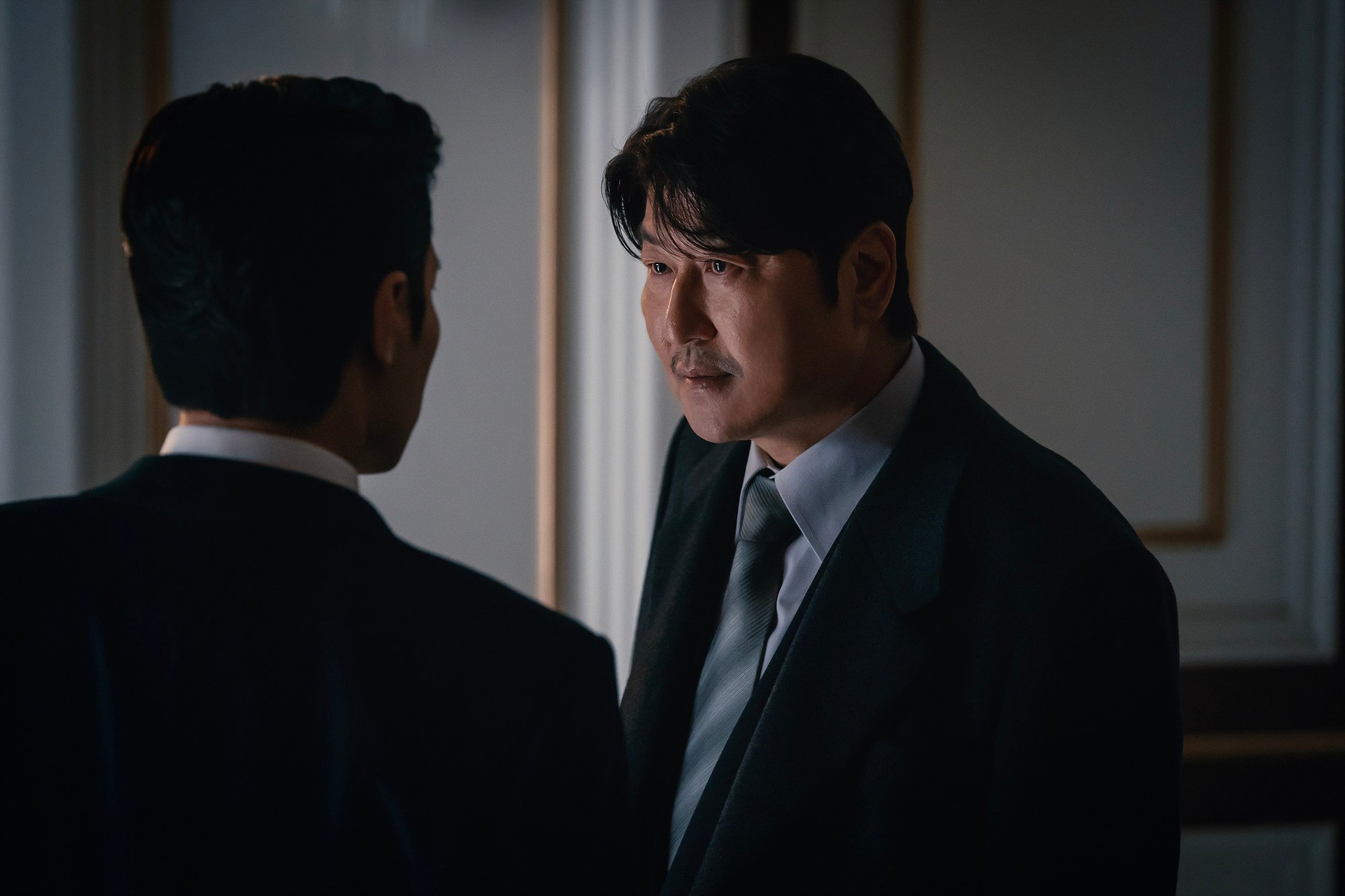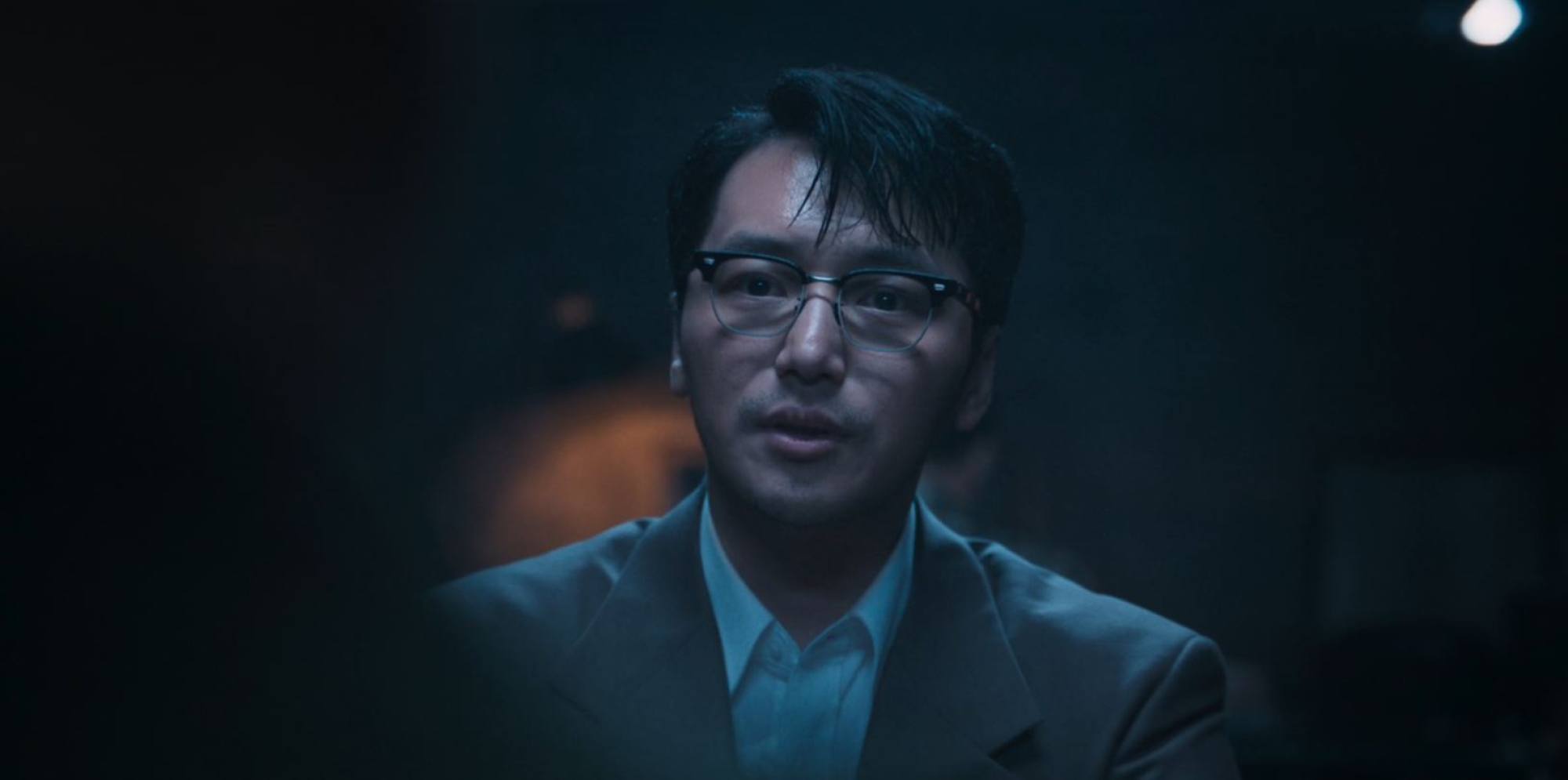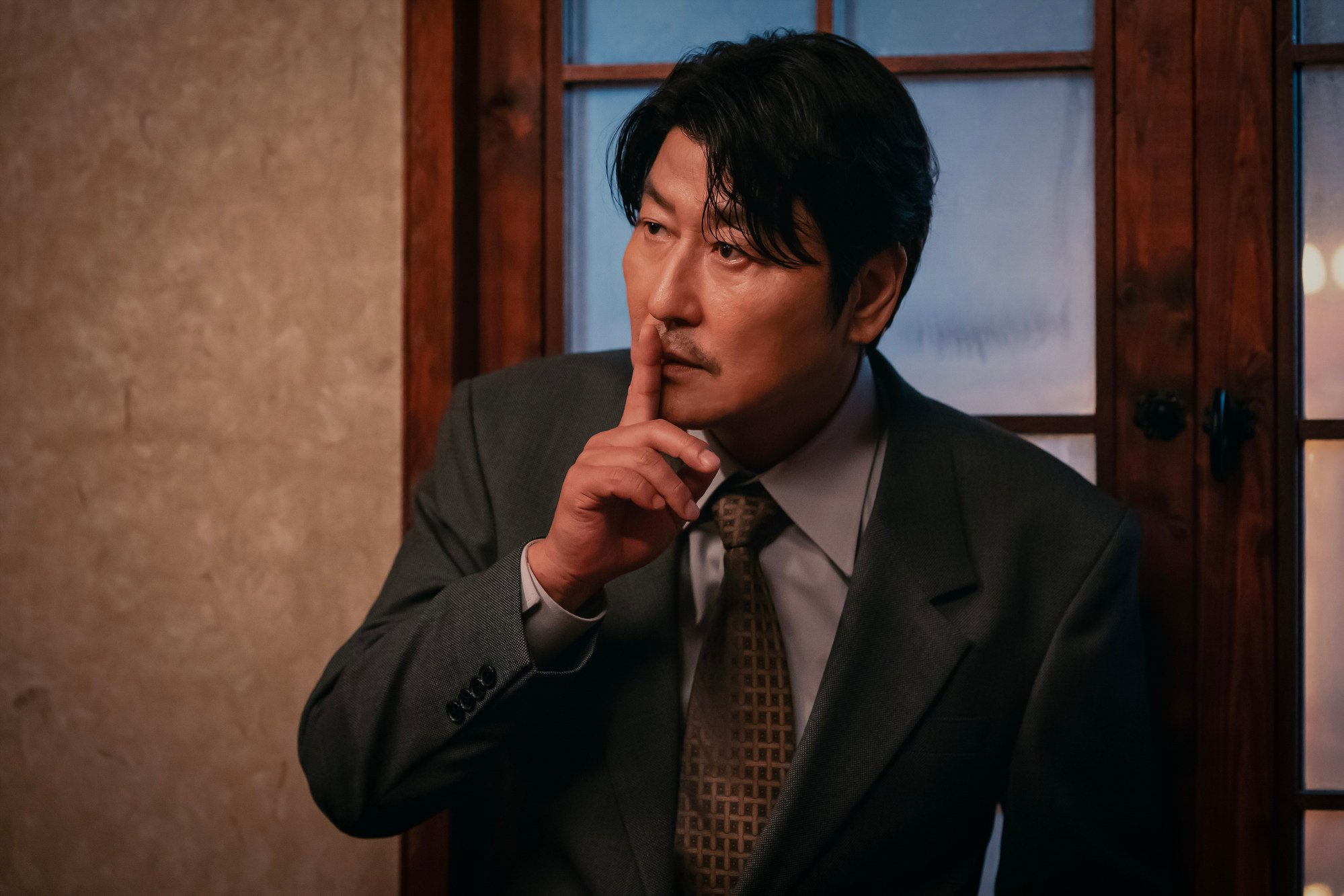Lead cast: Song Kang-ho, Byun Yo-han, Lee Kyu-hyung, Jin Ki-joo
In contrast to that hit film, this drama is not based on real events, although its story does play out against a real historical background.
As the story jumps back and forth between military interrogations and the events leading up to them, we know it will end with a failed coup d’état. What we do not know is how this coup came about and exactly who was involved and why.
To what degree that relationship is a business partnership or a friendship is a question the series constantly prompts us to consider amid ideological conflict and acts of political necessity.
Adding another layer to the events playing out on the screen is the knowledge of real historical events that many viewers will have.
The fake coup in the series, which takes place in 1960, is doomed to failure. But in May 1961, a successful coup did happen in South Korea, which brought President Park Chung-hee to power for 18 years. Following his assassination, there was another successful coup – the basis for the events of 12.12: The Day.

Samsik and San may not be real characters but the world they exist in is – Korea’s leader in their story is Rhee Syngman, who was the South Korean president at the time in which it is set: 1959 and 1960.
Uncle Samsik unspools in a nation rebuilding in the aftermath of the Korean war, which technically has yet to end following a 1953 armistice.
Korea was a colony of Japan for decades until 1945, and at the time of the story, South Korea was hugely influenced by the occupying American forces. The rest of the world can only see a poor country ravaged by war and conflict. Indeed, even in the late 1950s, the streets of Seoul are still dirt roads.
San dreams of bringing Korea out of poverty and into a prosperous future through his economic reform plan. Samsik believes in San’s passion, although to what extent he believes in the plan is deliberately left unclear.

Several characters in the show who have foreign connections or access to capital question whether the country is ready to embrace democracy. With the benefit of hindsight, we know that it was not. Democracy would not be achieved in South Korea until 1987.
What we also know is that, despite the decades of authoritarian rule that will follow the events of the story, economic prosperity was achieved. Park Chung-hee was a despot, but thanks to him South Korea entered an era of breathless economic progress.
These real-life events give the fictional events of Uncle Samsik a compelling dimension, particularly the revelation that San may have been the person responsible in the first place for the coup it depicts.
At first, this seems to fly in the face of the image we have of San as an idealist, but Uncle Samsik has deftly chronicled the rocky road his idealism has had to traverse.
The further he travels, the narrower that road becomes, and the only way for him to get through the impasses that loom ahead is to recast that idealism.

Samsik has always been a pragmatist, but the turning point in his relationship with San ironically arrives when the latter becomes a pragmatist as well.
They are both prepared to do what is necessary, but their goals are different in scale. Samsik wants to feed himself and those who help him, while San wants to feed the whole country for generations to come.
To achieve his lofty goals, does San need to turn into a monster? The question invites us to consider the complicated legacy of Park Chung-hee as president, even though the latter has not appeared as a character in the show.
While these political and historical storylines are ripe for exploration, the show’s anchor remains the relationship between Samsik and San.

Their bond is not unlike the bromance shared by the lead characters in the 2022 election film Kingmaker, also set in the 1960s and featuring Sol Kyung-gu and the late actor Lee Sun-kyun.
Song is typically excellent as the avuncular yet morally ambiguous Samsik, while Byun does some of his best work yet as the cagey San.
Uncle Samsik is streaming on Disney+.

